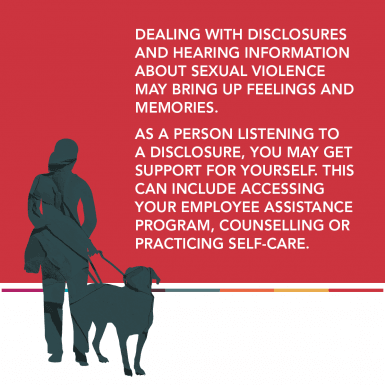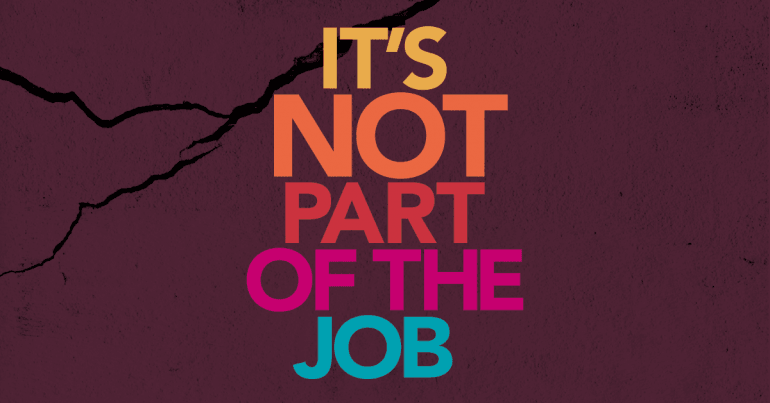 Barriers to disclosure
Barriers to disclosure
Statistics underestimate the extent of sexual violence because workers are reluctant to report. While a 2014 poll found that 43 per cent of women said they had been sexually harassed at work, it also found that four out of five people who experienced sexual harassment did not report it to their employer. [i]
Some of the barriers to disclosure that workers may face include:
- Fear of reprisal from the employer (e.g., being passed over for work and career opportunities, or even losing their job outright)
- Shame, embarrassment and self-blame
- Not wanting to talk about or relive the experience
- Fear of retaliation from the perpetrator
- Fear of not being believed
- Social isolation
- Lack of awareness of supports and services
- Concerns about confidentiality and privacy
Precarious work can make workers even more vulnerable to sexual violence in their workplaces. People with insecure employment can be afraid to refuse advances and disclose sexual harassment and violence. This is compounded if a worker has precarious immigration status.
If someone discloses sexual violence in the workplace or elsewhere, they should not be pressured to report to the police. Not all survivors will want to involve the criminal legal system. It is important to put respect at the centre of the process and ensure that the survivor understands the options available to them and their agency to choose. As many options as possible should be made available for those who have experienced harm. This can include the help of a joint union-employer health and safety committee or a neutral third party, to conduct investigations. There is more on disclosure and reporting later in the guide.
Dealing with disclosures and hearing information about sexual violence may bring up feelings and memories. As a person listening to a disclosure, you may get support for yourself. This can include accessing your Employee Assistance Program, counselling or practicing self-care.
[i] Angus Reid Institute, Canadian Public Opinion Poll on Sexual Harassment at Work, 2014. Available at http://angusreid.org/wp-content/uploads/2014/12/2014.12.05-Sexual-Harassment-at-work.pdf





